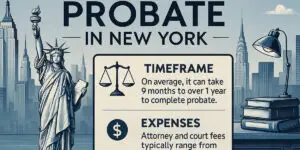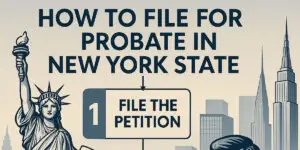To create an estate plan, it is important that you are familiar with estate planning documents like a will, a trust, power of attorney, healthcare power of attorney, etc. In this article, I’ll be talking about a will and a trust.
Will
A will is one of the most important estate planning document. Without this legal document, your estate will be shared and managed based on the intestate laws of your state. A will is simply a document that contains your wishes. It contains how you want your assets to be shared, who you want to receive a portion of your assets, how you wish to be buried, the name of your estate executor, including other significant information.
Wills can very base on their effectiveness, depending on the type, though no document will likely solve the problems that comes up after your death. If you die without a will, it would be impossible to execute your wishes. In addition, your heirs may end up spending extra time, money, including emotional energy to resolve your affairs after your demise.
Types of Wills
An estate plan is not complete without the creation of a will. This document is very important to an estate plan as it hold information regarding your assets, how you want it to be shared, and who you want it to be shared to.
There are several types of wills. However, the four primary types of wills are testamentary trust, joint, and living wills. Other types of wills are holographic wills, which are handwritten, including oral wills, which are not recognized in all states. Your situation would determine the type of will to create. If you reside in New York, ensure you talk to a will attorney, New York on what type of will is best for your circumstances.
Trusts Explained
When you hear the terms “Trust” or “trust fund,” the first thing that may come to your mind is a rich family in a huge mansion with inherited assets transferred from generation to generation. But, you don’t have to be a relative of Elon Musk, or Jeff Bezos to set up and benefit from a trust.
A trust can be defined as a legal vehicle that allows a third party, also known as a trustee, to hold and mange assets in a trust fund on behalf of a beneficiary. A trust helps widen your options when it comes down to managing your assets, whether you are trying to protect you assets from taxes or you wish to transfer them to your heirs.
Irrevocable Trusts VS. Revocable Trusts
Revocable trusts are very different from irrevocable trusts, thus shouldn’t be mistaken for each other. An irrevocable trust is one that cannot be altered, modified, changed or terminated without the consent or approval of the beneficiaries designated by the grantor (creator of the trust or trust owner).
On the other hand, a revocable trust is one that can be canceled, altered, modified, or changed without the consent or approval of the beneficiaries designated by the grantor. Such trusts offer the benefit of allowing their creator or the grantor to eliminate them and take back property held by the trust anytime they wish before their demise. But, one of the disadvantages of revocable trust is that, it doesn’t offer protection against lawsuits or estate taxes like its counterpart, irrevocable trust.
Who is a Trust Attorney?
A trust attorney is a sate licensed professional whose job is to help you set up a trust for your estate. This professional is well versed in the issue of trust and can provide you with advice or recommendations if needed.
Who is a will Attorney?
A will attorney is a lawyer that specializes in the creating of wills for individuals. These professionals have the experience, knowledge and resources needed to help you create a will that mirrors your wishes and adheres to the guidelines of the state government.
Always have it in mind that a judge can deem your will invalid if it believes that it wasn’t created using the laid down principles. If this happens, it means it would be assumed that you died intestate (without a will). So, to avoid this, ensure you hire a competent will attorney, New York









